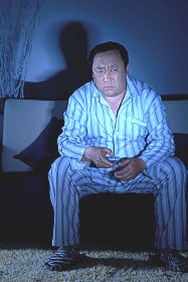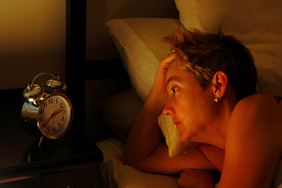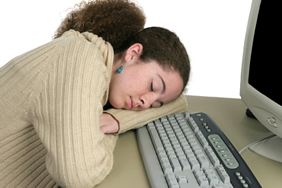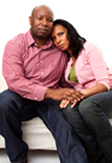Former Studies
Our studies have focused on using cognitive behavioral therapy to improve the sleep patterns of various populations.
Sleep Disturbance in Bipolar Disorder
Treatment Study

People who have Bipolar Disorder struggle with periods of depression (when they have a persistently sad or apathetic mood that is accompanied by symptoms like disturbed sleep, disturbed appetite, trouble concentrating, and feeling down on themselves) and mania (when they have a persistently euphoric or irritable mood along with symptoms like racing thoughts, decreased sleep, and poor judgment). It is not uncommon for people with bipolar disorder to struggle with problems falling asleep, problems staying asleep, not feeling refreshed when they wake, feeling sleepy during the day, sleeping too much at night, struggling to keep a steady sleep schedule, and/or not being able to fall asleep and wake at the times they would like. Cognitive Behavioral Therapy has been found to be effective in improving sleep, health and well being for many people. Our study attempted to determine if this approach is also helpful for people who have Bipolar Disorder. Our hypothesis theorized that a cognitive behavioral treatment will improve sleep, health and quality of life as well as reduce the risk of future depression and mania.
Adult Insomnia Treatment Study

Insomnia and restless sleep are surprisingly common problems and can cause much distress and worry. Our study compared the effects of three different types of therapy that use cognitive and behavioral applications to treat insomnia and its daytime effects. All insomnia treatments we used in this study have been shown to effectively improve sleep. There was no placebo treatment and there were no medications.
Treatment for Sleep Disturbance in Depressed Youth

Major Depressive Disorder is common during adolescence, and many youth who struggle with depression also experience problems with their sleep. Although talk therapy and antidepressants are effective in treating depression among teenagers, many depressed adolescents continue to experience depressive symptoms even with treatment.
Our group collaborated with Dr. Greg Clarke’s group at the Kaiser Permanente Center for Health Research in Portland, Oregon to compare different ways of improving sleep and mood in teenagers. The treatments involved cognitive behavioral therapy that aims to help adolescents feel less depressed and will help with trouble falling asleep, trouble staying asleep, waking too early in the morning and not being able to return to sleep, having restless sleep, not feeling rested when they wake after a full night of sleep, sleeping too much at night, feeling sleepy during the day, and having trouble staying awake during the day.


